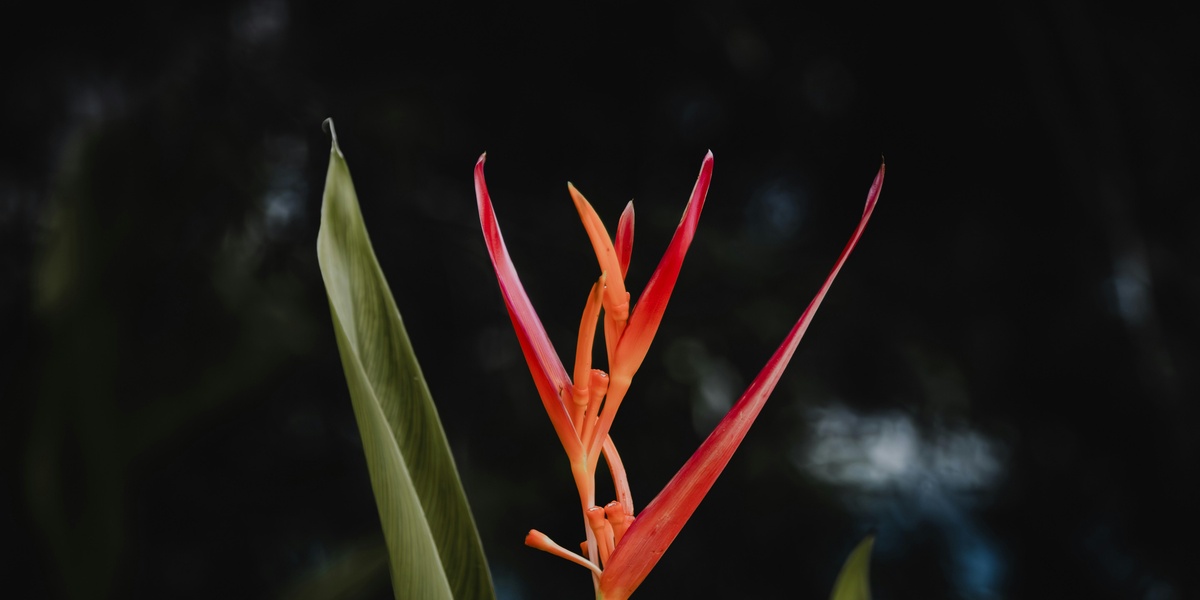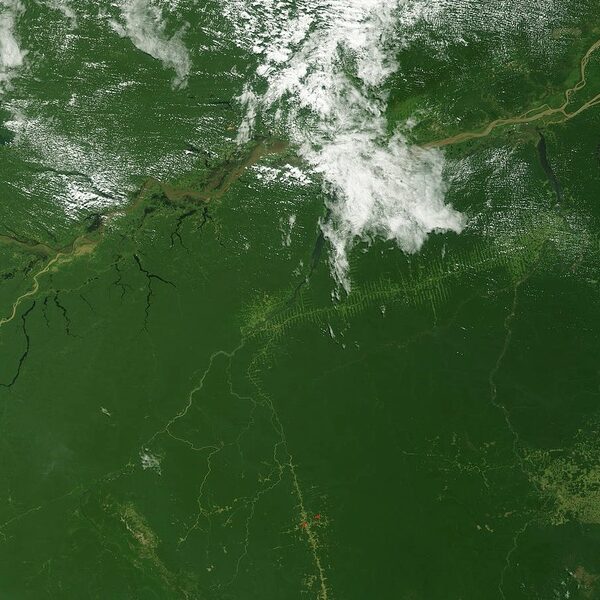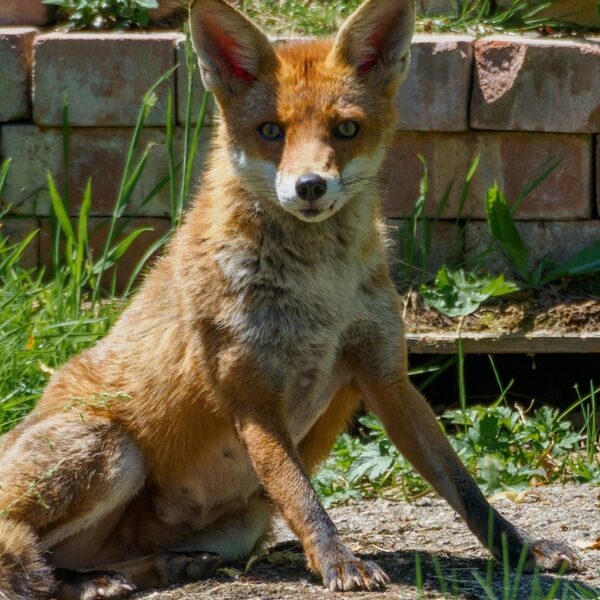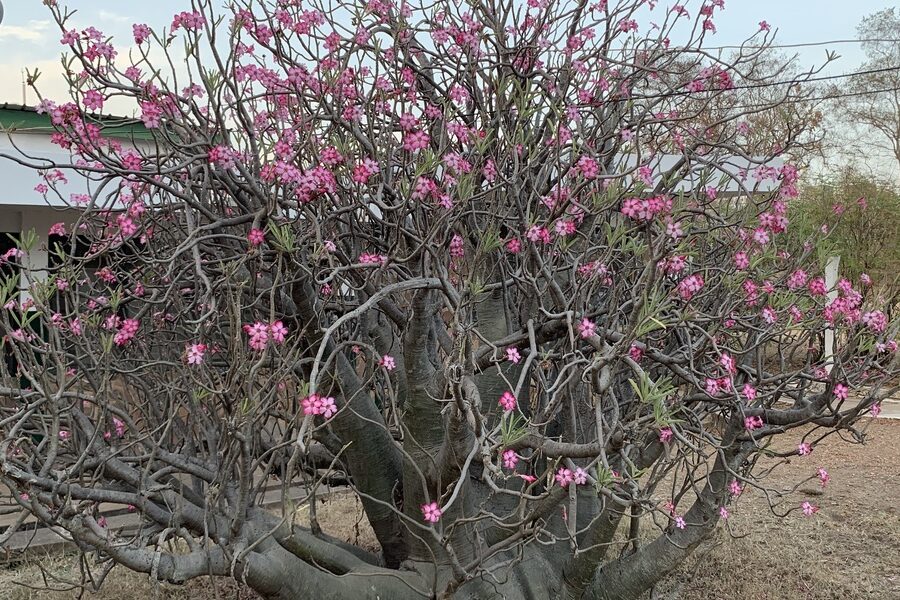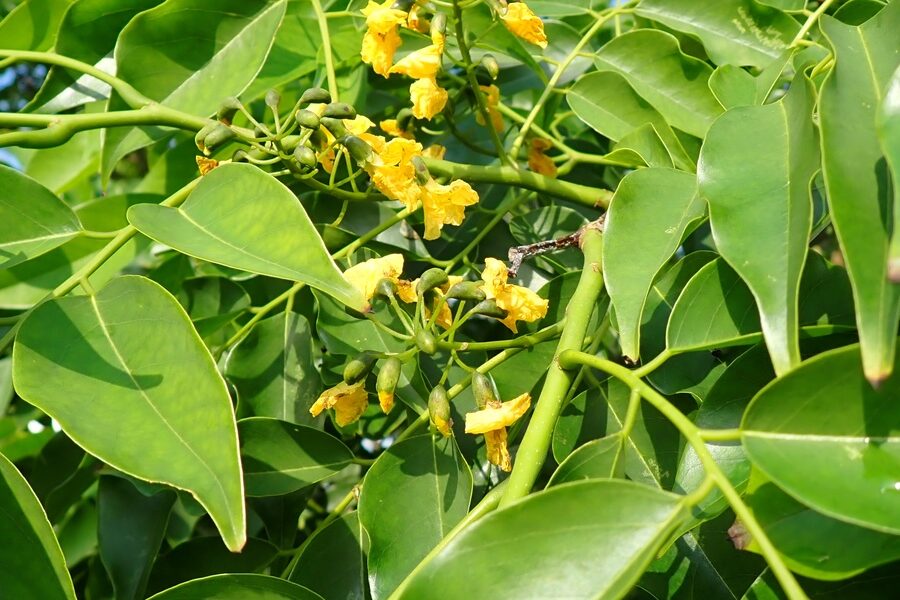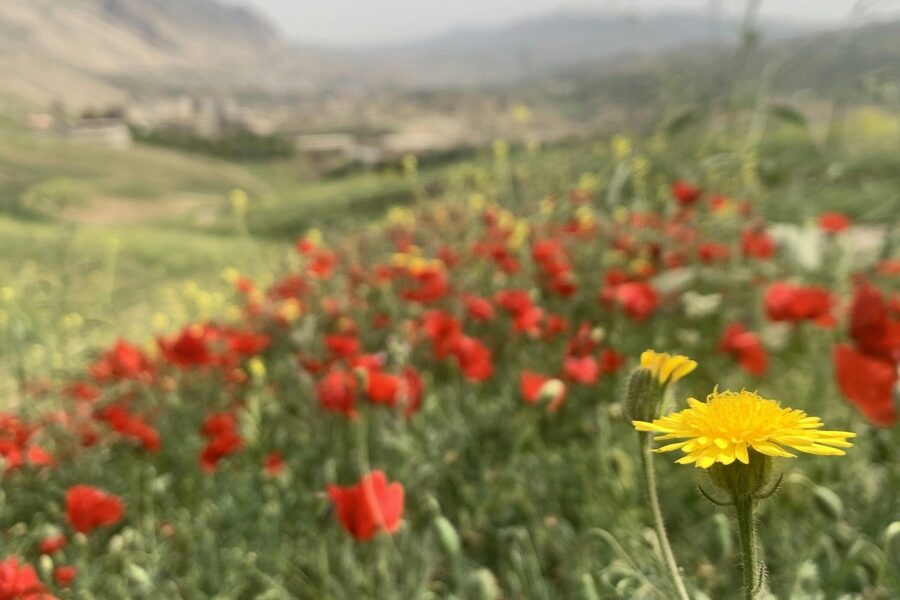The Dominican Republic, a vibrant gem in the heart of the Caribbean, is celebrated not only for its pristine beaches and lively culture but also for its remarkably diverse natural landscapes. From lush tropical forests to arid coastal regions, the island’s varied ecosystems create ideal conditions for a stunning array of plant life to flourish, painting the country with an incredible spectrum of colors throughout the year.
This carefully compiled guide invites you to explore that natural splendor, featuring an exact 28 Flowers of the Dominican Republic. You’ll discover species ranging from the striking African Tulip Tree to the delicate Sea Hibiscus, illustrating the wide variety found across the island. Each entry is organized with practical details such as its Scientific Name, DR Status, and Typical Bloom Season, all designed to give you a clear understanding of what you’ll find below.
What factors contribute to the Dominican Republic’s rich floral diversity?
The Dominican Republic’s unique geographical position in the Caribbean, coupled with its varied topography, is key to its exceptional floral richness. The island boasts multiple microclimates, from tropical rainforests to semi-arid zones, which allow a vast spectrum of plant species to thrive. Its geological history and relative isolation have also resulted in a significant degree of endemism, meaning many plants found here are native and unique to the island, further enhancing the country’s distinct botanical character.
Flowers of the Dominican Republic
| Flower Name | Scientific Name | DR Status | Typical Bloom Season |
|---|---|---|---|
| Bayahibe Rose | Pereskia quisqueyana | endemic | Spring (Mar-May) |
| Hibiscus | Hibiscus rosa-sinensis | introduced | Year-round (peaks in wet season) |
| Sea Hibiscus | Hibiscus tiliaceus | native | Year-round (peaks spring-summer) |
| Bougainvillea | Bougainvillea glabra | introduced | Year-round (peaks in dry season) |
| Allamanda | Allamanda cathartica | introduced | Year-round (peaks in wet season) |
| Frangipani | Plumeria rubra | introduced | Year-round (peaks spring-summer) |
| Bird of Paradise | Strelitzia reginae | introduced | Year-round (peaks winter-spring) |
| Heliconia | Heliconia bihai | native | Year-round (peaks wet season) |
| Lantana | Lantana camara | introduced | Year-round (peaks in wet season) |
| Pink Trumpet Tree | Tabebuia heterophylla | native | Spring (Mar-May) |
| Flamboyant | Delonix regia | introduced | Late spring (May-Jun) |
| Ixora | Ixora coccinea | introduced | Year-round (peaks wet season) |
| Oleander | Nerium oleander | introduced | Year-round (peaks spring-summer) |
| Jasmine | Jasminum sambac | introduced | Year-round (peaks summer) |
| Passionflower | Passiflora edulis | introduced | Year-round (fruiting and flowering peaks in wet season) |
| Ginger Lily | Hedychium coronarium | introduced | Summer-autumn (Jun-Oct) |
| Crown of Thorns | Euphorbia milii | introduced | Year-round |
| Peacock Flower | Caesalpinia pulcherrima | introduced | Year-round (peaks spring-summer) |
| Morning Glory | Ipomoea purpurea | introduced | Year-round (peaks wet season) |
| Hispaniolan Orchid | Broughtonia domingensis | endemic | Spring-summer |
| Anthurium | Anthurium andraeanum | introduced | Year-round (peaks spring) |
| Canna | Canna indica | native | Year-round (peaks wet season) |
| Red Ginger | Alpinia purpurata | introduced | Year-round (peaks wet season) |
| Periwinkle | Catharanthus roseus | introduced | Year-round (peaks wet season) |
| Poinsettia | Euphorbia pulcherrima | introduced | Winter (Dec-Jan) and year-round in warm sites |
| Mexican Heather | Cuphea hyssopifolia | introduced | Year-round (peaks wet season) |
| African Tulip Tree | Spathodea campanulata | introduced | Year-round (peaks spring-summer) |
| Blue Mahoe | Talipariti elatum | native | Spring-summer |
Images and Descriptions
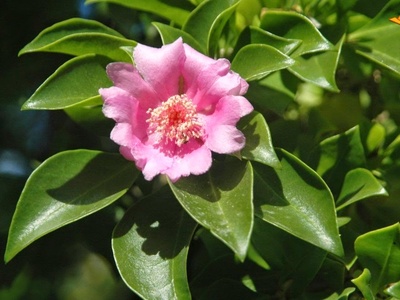
Bayahibe Rose
A rare, thorny cactus with showy pink to magenta rose-like blooms, the Bayahibe Rose is endemic to coastal Dominican limestone soils. It is the national flower, prized for its vibrant petals and conservation significance in local restoration efforts.
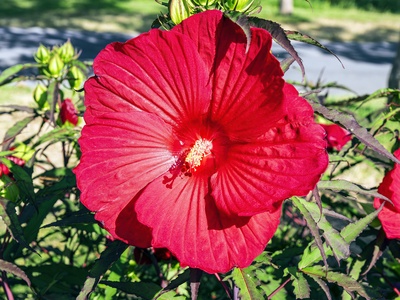
Hibiscus
Tropical shrub bearing large, trumpet-shaped flowers in red, pink, yellow and white; widely planted in gardens and along roadsides. Hibiscus blooms are cultural symbols, used in leis, teas, and as pollinator magnets for hummingbirds and butterflies.
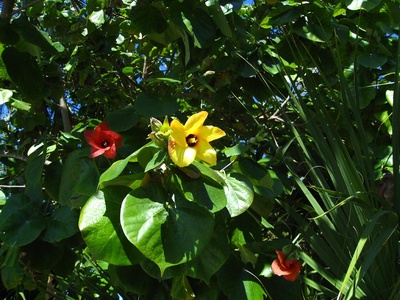
Sea Hibiscus
A salt-tolerant coastal tree with heart-shaped leaves and pale yellow to orange hibiscus flowers fading to cream. It stabilizes shorelines, provides shade, and its fragrant blooms attract bees and butterflies while offering traditional uses among coastal communities.
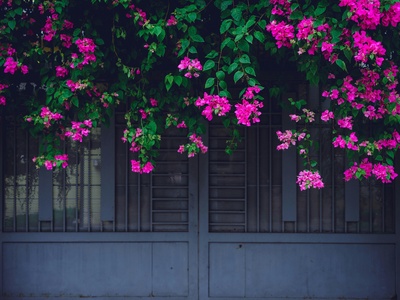
Bougainvillea
Vibrant, thorny vines adorned with papery magenta, purple, or white bracts that resemble flowers; commonly used as hedges and ornamental screens. Drought-tolerant and vigorous, bougainvillea adds dramatic color to homes, streets, and public gardens across the island.
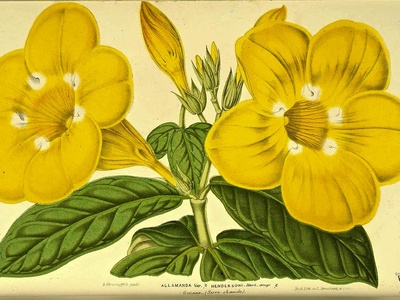
Allamanda
Golden trumpet-like flowers on glossy-leaved vines or shrubs create bold, sunny displays. Allamanda is a popular ornamental along roads and gardens, attracting pollinators while requiring warm, humid conditions and regular pruning to control its spread.
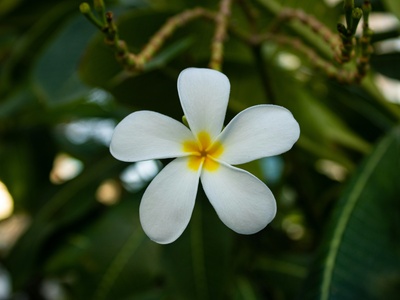
Frangipani
Fragrant, waxy five-petaled flowers in white, yellow, pink, and red adorn small deciduous trees, often used in leis and landscaping. Plumeria’s scent intensifies at night, attracting moths, and its sculptural branches are a common sight around homes and temples.
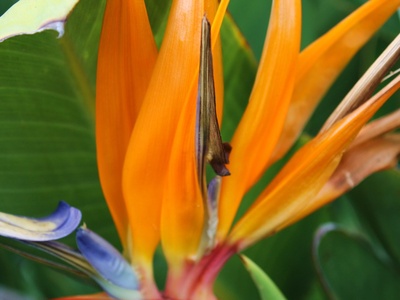
Bird of Paradise
Exotic, crane-like orange and blue flowers atop stiff stems resemble tropical birds and are prized in cut-flower arrangements. Though native to South Africa, bird of paradise is widely cultivated in Dominican gardens for architectural form and long-lasting blooms.
Heliconia
Bold, lobster-claw inflorescences in red, yellow, or orange atop large banana-like leaves make heliconias rainforest icons. They provide nectar for hummingbirds and create dramatic understory color in gardens and wild forests throughout the island.
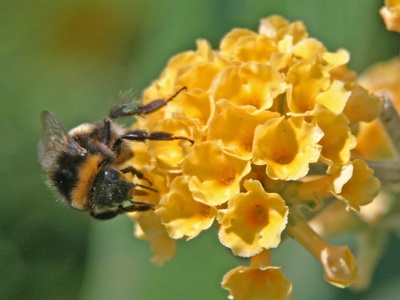
Lantana
Clustered, multicolored flower heads change color as they age, attracting butterflies and birds. Lantana is hardy and drought-tolerant but invasive in some areas; it forms dense thickets that can outcompete native plants when unmanaged.
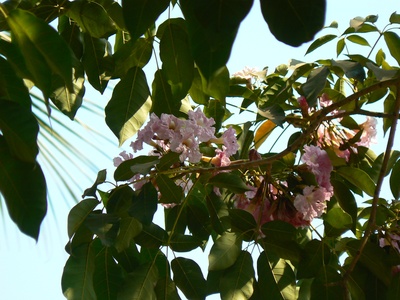
Pink Trumpet Tree
A standout street and landscape tree with clusters of pale pink to white trumpet-shaped flowers that burst in spring. Tabebuia’s spectacular short flowering display attracts pollinators and marks the end of the dry season with vibrant color.
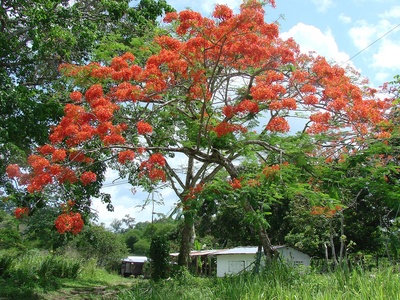
Flamboyant
Also called Royal Poinciana, this ornamental tree dazzles with broad, flat canopies and fiery orange-red pea-like flowers in a flamboyant seasonal show. It shades streets and plazas and is a dramatic landscape focal point during flowering.
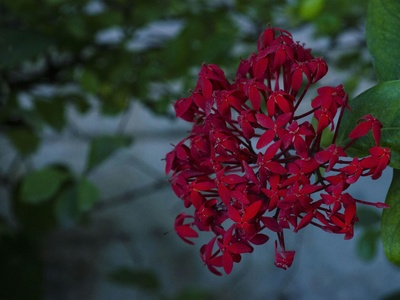
Ixora
Dense clusters of small tubular flowers in reds, oranges, and pinks form glossy shrub displays used for hedging and mass planting. Ixora is a garden favorite for its long bloom period and attractiveness to butterflies and hummingbirds.
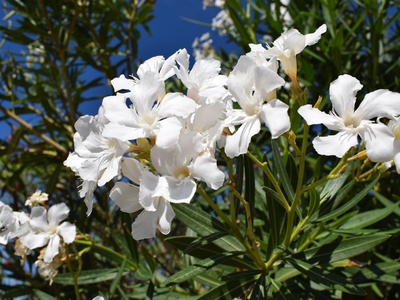
Oleander
Evergreen shrub or small tree with showy clusters of pink, white, or red funnel-shaped flowers. Common in roadsides and gardens, oleander is highly poisonous if ingested despite its beauty, so care is needed around children and pets.
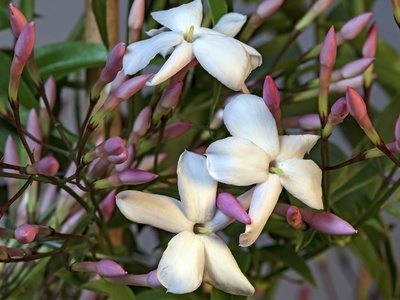
Jasmine
Fragrant white star-shaped flowers are used in garlands and perfumes; jasmine vines and shrubs climb fences and trellises in gardens. Its intense scent at night draws pollinating moths and evokes tropical evening scents in Dominican neighborhoods.
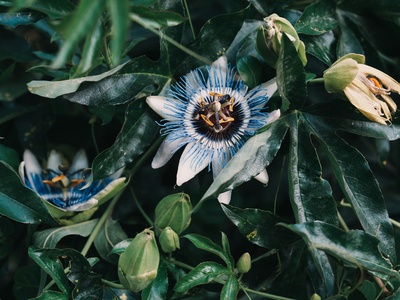
Passionflower
Vining passionflower produces intricate, fringed purple-and-white flowers followed by edible passion fruit. Often grown for both ornament and fruit, it attracts bees and butterflies, and its complex flower structure fascinates gardeners and botanists alike.
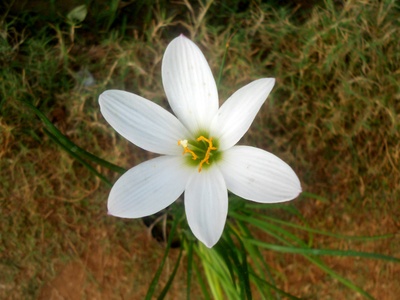
Ginger Lily
Also called white ginger, this fragrant perennial produces waxy white blooms on tall stalks and prefers moist, shaded sites. Its heady perfume fills gardens at night and it’s often used in traditional ceremonies and naturalized in wet areas.
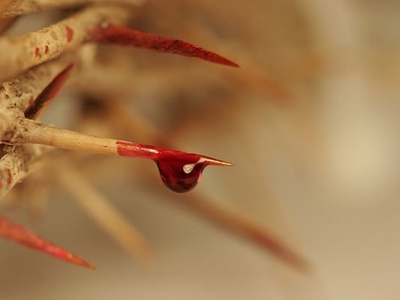
Crown of Thorns
Spiny succulent shrub with small colorful bracts in red, pink, or yellow surrounding tiny flowers; commonly grown as a hardy hedge or container plant. Its latex is irritating, so gardeners wear gloves when pruning.
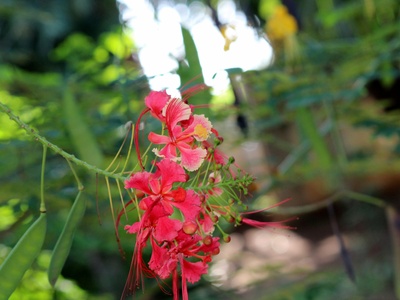
Peacock Flower
Also called Pride of Barbados, this shrub or small tree sports flamboyant red, orange, and yellow feathery flowers with long stamens. It thrives in sunny sites, attracts butterflies, and is often used in tropical ornamental plantings.
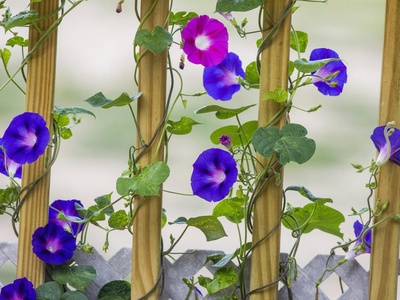
Morning Glory
Fast-growing annual vine with funnel-shaped flowers in purple, blue, pink, or white that open in the morning and may close by afternoon. Morning glories climb fences and trellises, providing quick color and habitat for pollinators.
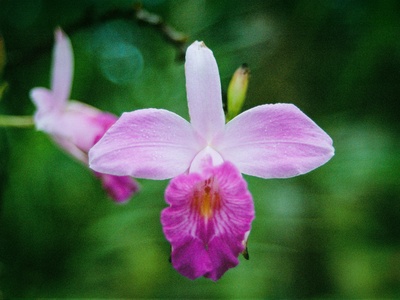
Hispaniolan Orchid
Compact epiphytic orchid with clusters of showy pink to purple flowers used in local displays; favors limestone forests and coastal scrub. Regarded as a charming native orchid that highlights island biodiversity and is sought by collectors.
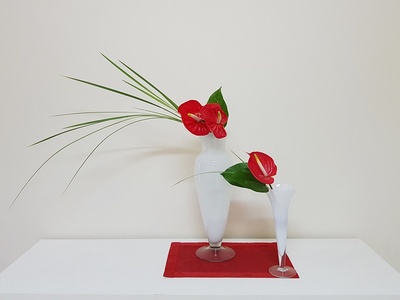
Anthurium
Showy, glossy red or pink spathes with a central spadix define anthuriums, prized as long-lasting tropical cut flowers and houseplants. They thrive in warm, shaded conditions and are popular in Dominican gardens and floral arrangements.
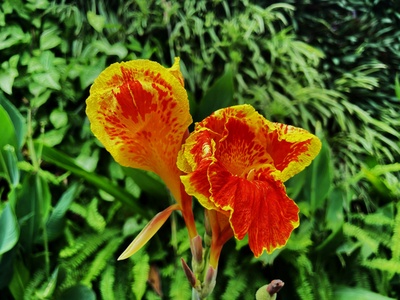
Canna
Bold foliage and tall spikes of red, orange, or yellow flowers make cannas popular garden accents. Canna indica thrives in moist, sunny sites, tolerates tropical heat, and draws hummingbirds and butterflies with its tubular blossoms.
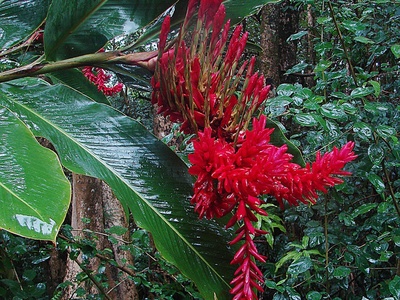
Red Ginger
Red ginger produces striking, waxy red bracts in tall cones above lush foliage, commonly used in floral arrangements and tropical gardens. Prefers humid, shaded spots and shades the island’s understory with vibrant vertical color.
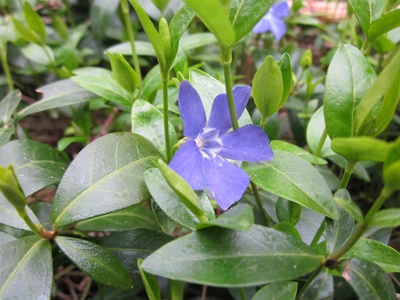
Periwinkle
Low-growing perennial with glossy leaves and five-petaled flowers in white, pink, and purple, common in bedding and tropical gardens. Periwinkle tolerates heat and dry spells, making colorful, low-maintenance groundcover across the Dominican Republic.
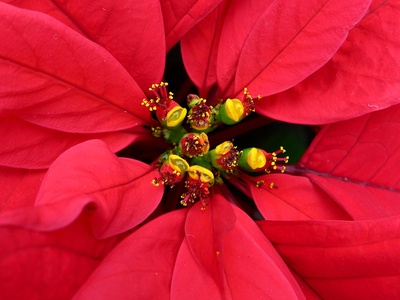
Poinsettia
Famous for bright red bracts that surround small yellow flowers, poinsettias are grown as ornamentals around the holidays and year-round in warm climates. They add festive color but contain irritant sap if handled roughly.
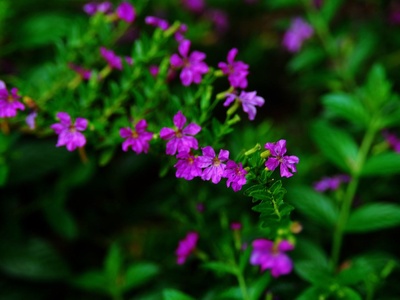
Mexican Heather
Low shrub with masses of small tubular lavender, purple, or white flowers that bloom profusely and attract butterflies. Mexican heather makes neat borders and tolerates heat, drought, and pruning for formal garden use.
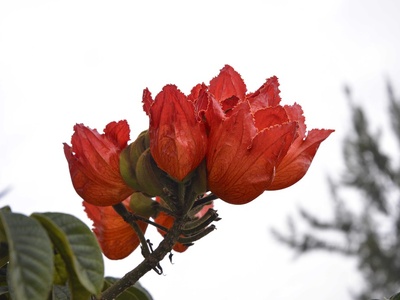
African Tulip Tree
African tulip tree bears large clusters of orange-red trumpet flowers that create colorful canopies. Fast-growing and used as shade or ornamental trees, they bloom dramatically but can be aggressive in some landscapes.
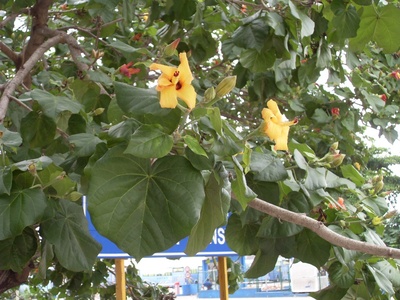
Blue Mahoe
Blue mahogany-like tree with large hibiscus-style yellow flowers that may flush pink or red, offering ornamental value and valuable timber. Native to the Caribbean, it enhances forest edges and gardens with sizable, showy blooms.
